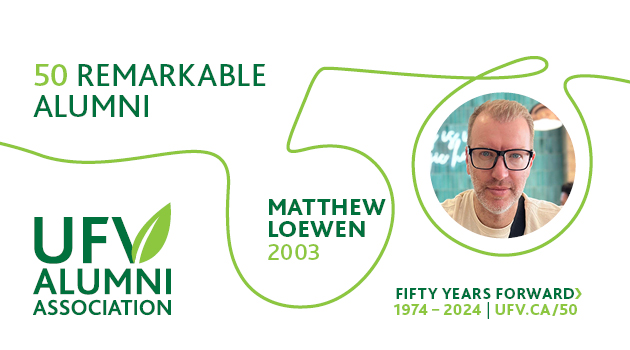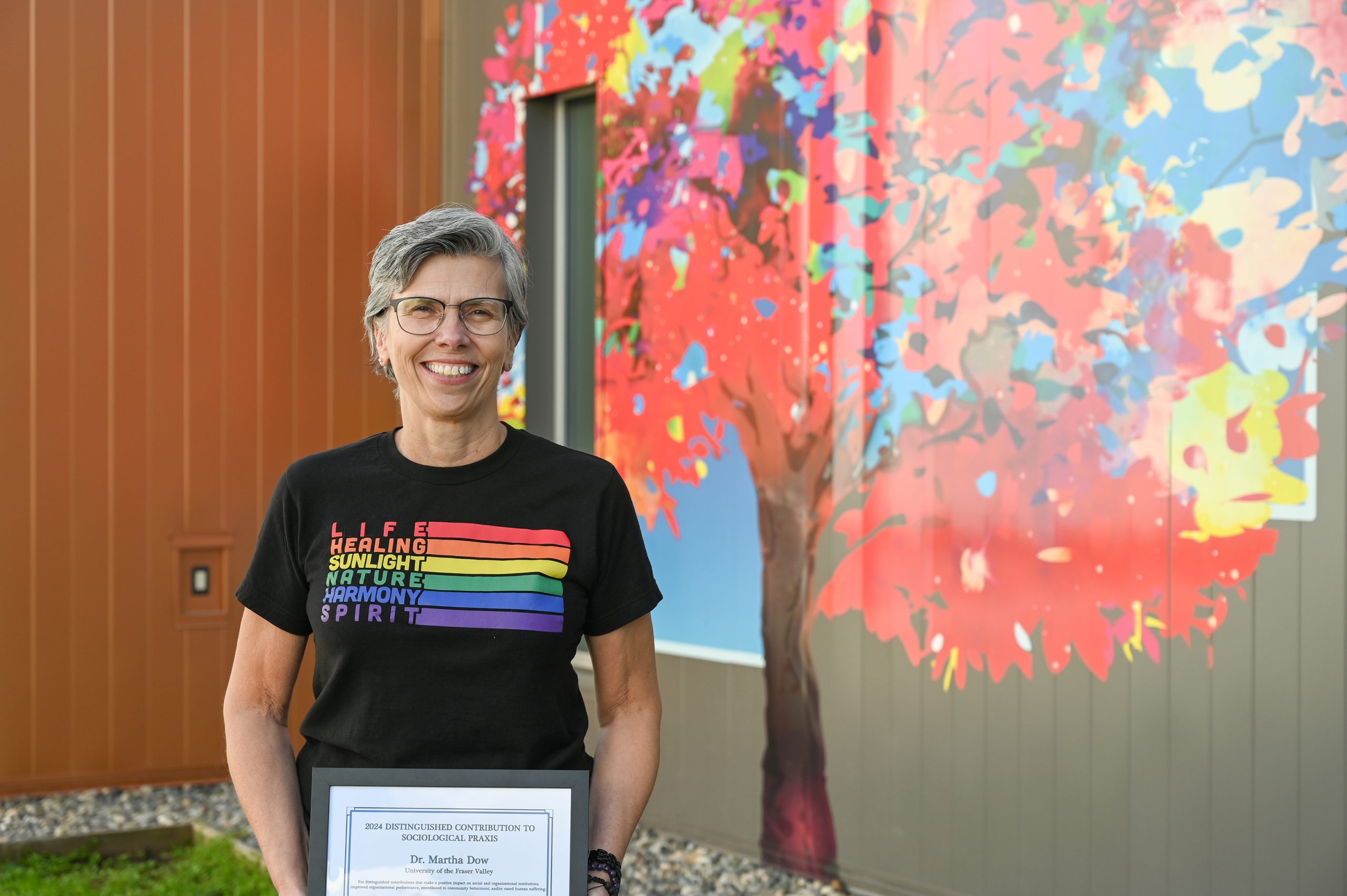UFV grad wins Champion of Diversity award

Last month UFV alumnus Marc Forcier stood up in front of almost 400 people to accept an honour he wasn’t expecting at the Fraser Valley Cultural Diversity Awards (FVCDA).
“It was shocking in a great way. I was just in awe, overwhelmed,” he says of receiving the Champion of Diversity trophy that now sits on the fireplace mantle in his Abbotsford home. “I didn’t think anyone knew about my club.”
The club is Black Connections, an endeavour Forcier founded five years ago at UFV to bring the black community on campus together — along with others — to hang out and talk about issues in a black-majority setting.
Half a decade after the inception of the group, the UFV history grad found himself addressing a crowd of “community heroes and superstars” at the Quality Hotel Conference Centre at the FVCDA’s 16th event.
For Forcier, it’s the culmination of a long road of seeking and discovering his own identity, building community, and starting important dialogue about race in Abbotsford.
He’s uniquely positioned to create a space for the necessary and challenging conversation, having lived a specific version of the Fraser Valley black experience. Born in Haiti in 1993, he was adopted and came to Canada the following year, where he was raised by white parents.
Forcier is grateful for his mixed family, which also includes two adopted siblings.
“We’ve had a great upbringing,” he says. “But when you’re younger, you lose yourself in that, a piece of your identity. It’s not the whole make-up, but that large physical piece.”
His upbringing helps Forcier stay diplomatic in club settings, even in the face of ignorant comments and questions.
“I’m going to cool it in those situations, and I’m going to respond peacefully so you can hopefully understand it from our perspective,” he says. “Which is what the club’s all about. You’re getting it from our perspective — we have to endure that to get the right message out.”
Forcier’s history studies at UFV also came in handy, helping him debate arguments and pushback the club received from other students. He approached contentious conversations with research backed by at least two sources.
“Without UFV I don’t think I would have had the right platform to have started this off in such an academic setting,” Forcier says. “That was huge. We got to fight against academic-level retorts to our group being in existence.”
Mother Haiti
When Forcier returned home after a stint on Vancouver Island, he truly acknowledged his social standing as seen by the world.
And that’s when he felt the calling to go back to Haiti for the first time since he left as an infant.
“So many things were happening here, I didn’t know who I was,” says Forcier. “And then Mother Haiti said ‘You’ve got to come back and see your culture. Don’t let the earthquake photos tell you what your country is, or all the images of starvation tell you what your country is. Come back and see your country.’ ”
He answered that call in 2014 and found a country that was “impoverished and strangled” because of its founding history.
But Mother Haiti showed Forcier a different angle than the earthquake and starvation photos.
“I saw resilient people fighting a global repression,” he says. “And I was proud to see it and to see the smiles on my people’s faces.”
That journey was an important healing process for a young Forcier, who came home wanting to feel the same belonging in Canada.
So in September of that same year when he was touring UFV during orientation, the initial idea for Black Connections was born when he met Michelle Ndizeye (a UFV alumna and founding president of the club).
“I figured out that I needed to meet my people,” Forcier says. “I needed to find faces that look like me and have conversations and be in an environment where I can just be.”
By the second or third week of the semester they had the club forms signed and Forcier was developing the lesson plans, while Ndizeye was recruiting members.
“We were so happy that UFV was just down with it,” he says. “We told our club advisor the idea and she was so supportive. We thought there were going to be a lot more hurdles than there were.”
At its height Black Connections had 30 people participating at weekly meetings, with only one attendance requirement: to provide a majority black experience.
However, Forcier and the club’s executive all graduated UFV in 2016, and they were unable to find successors. So Black Connections stalled until a racial incident at work ignited Forcier to revive the club in its more transitory form.
During this phase Forcier and club members have thrown two Black History Month block parties with The Reach Gallery Museum Abbotsford, and have created many other community initiatives.

And as Forcier now basks in the elation of his Champion of Diversity award win, the 25-year-old’s creation is at a critical point in its existence.
“Most desperately at this time, we need a space,” Forcier says. “What we hope to achieve is to have a true community hub, where we can be a community service, and you can come hang out if you need anything related to the black community.”
Funding for that space is a new hurdle for Black Connections as it aims toward the transition from its university club roots to a community service.
“Having a permanent space is a positive signifier for a community,” Forcier says. “You’re not going to leave, you’re going to be here and you’re going to fight the fight, or do the work for as long as you need to.”
It’s still a fledgling community in Abbotsford, but one that’s kept alive and growing with help from social media for the time being.
And for the foreseeable future the fight still needs to be fought, the work still needs to be done.
“We have to have that Canadian conversation about what’s going on regarding the Black Canadian population,” Forcier says. “We don’t have that conversation too much outside of the month of February or as a whole nation, or as a province, or a municipality.”
He says university is supposed to push us to our limits. Forcier now wants to harness that initial campus-fueled momentum to make the Black Connections discourse available to everyone, anytime.




